
Gene Gallin
More than a third of college football fans said they’d choose to attend their team’s biggest rivalry game of the year rather than their friend’s wedding if they were on the same day.
The shocking stat emerged in a new survey of 2,000 American college football enthusiasts, evenly split by NCAA Division I conference, which found that 35% of fans would choose the game over the nuptials, with Conference USA fans being most likely (47%) to show up to the field rather than the aisle on their friend’s wedding day.
But when it comes to game viewership, either in person or via streaming, SEC fans are the most likely to watch every single game of their team’s in a season (37%).
Holiday Inn Express by IHG Hotels & Resorts commissioned the survey with Talker Research to uncover the extreme lengths fans go to show up in the stands for their favorite team, from driving for days to hitchhiking a ride with strangers, as well as the game day rituals fans employ.
When asked about the craziest thing they’ve done to see their team play in person, one respondent said, “I hitched a ride from California to Indiana ... It took me three days to get there,” and another shared, “[I] chartered a private jet last-minute to make [it to] kickoff after a business trip ran late.”

One fan quit their job to attend a game, and another said, “[I] called the radio station 100 times in a row to win tickets.”
Looking at an overview of game turnout, the average college football fan who’s ever attended a game makes it to nearly four games in person each year.
But going above and beyond are Conference USA fans who show up to the sidelines for an average of 5.3 games per season. Other most-committed conferences include the American Athletic Conference (five games per season, on average) and the Mid-American Conference (4.5 games per season, on average).
The average college football follower who usually attends at least one game a year will travel a little under 1,000 miles (991) per year to see their team play.
But according to the results, although Conference USA fans attend more games than fans from other conferences, it’s actually fans of the American Athletic Conference who travel the farthest to see their teams play — 1,125 miles per year, on average.
“At the heart of college football are the fans,” said Justin Alexander, vice president of global brand management for Holiday Inn Express, Staybridge Suites & Candlewood Suites. “They put in a lot of effort to be part of the action — whether it's traveling long distances or navigating a packed weekend schedule — so staying energized is key. That’s where a good breakfast and a cup of coffee or two can really make a difference on game day.”
Most college football fans who travel to see their teams play (57%) spend at least one night away during game day weekends, and many have their own warm-up routines on game day. The average fan wakes up at 7:42 a.m. on game day, although SEC and Big Ten fans wake up earlier than most (both at 7:06 a.m. on average).
More than half (55%) require a full breakfast to fuel up for the big day, 49% rely on a morning cup of coffee and most (52%) make sure to include tailgating as well.
Coffee and caffeine on game days are critical for most fans (81%) to stay powered up all day long, and the average fan will down two cups of coffee to stay energized.
Along with morning routines, game day rituals play a big part in how fans root for their teams. More than half of respondents (52%) admitted they’re superstitious when it comes to their favorite team and 46% have a ritual they’ll do to boost their team’s odds of winning.
And while many fans have simple superstitions like wearing their team's gear, others take it a step further.

Eddie Ortiz
One fan confessed to “sleeping in my jersey the night before,” and another said they “bathe in hot sauce” before the game to increase their team’s chances of victory.
But fandom isn’t all about winning, as nearly all respondents (92%) said they’d remain loyal and committed to their team, even if they lost every game in a season, with Atlantic Coast Conference (95%) and Big Ten fans (94%) most likely to stay true through thick and thin.
“Holiday Inn Express has over 2,300 locations across the country, many of which sit in or near college towns. Each season, we look forward to welcoming guests who travel near and far to cheer on their favorite team, and just in time for the kickoff of college football season, we wanted to spotlight all the ways fans contribute to the sport,” said Alexander. “From braving extreme weather conditions to hitchhiking and finding any way possible to make the trip, fans go to incredible lengths just to be there in person. Their passion and presence are a vital part of what makes college football so special.”
More detailed insights on college football fan game attendance and the craziest things fans have done to see a game in person can be found below.

Alex Mertz
During a typical season, how many in-person games do you attend to see your favorite college football team play?
- Conference USA - 5.3
- American Athletic Conference - 5.0
- Mid-American Conference - 4.5
- Mountain West Conference - 4.4
- Sun Belt Conference - 3.9
- Pac-12 Conference - 3.8
- Big 12 - 3.5
- Big Ten 2.5
- Southeastern Conference - 2.5
- Atlantic Coast Conference - 2.4

Justin Shen
What is the wildest/most extreme thing you’ve ever done to go and see your favorite college football team play in person?
- “I hitched a ride from California to Indiana... It took me three days to get there.”
- “I quit my job to be able to attend.”
- “[I] called the radio station 100 times in a row to win tickets.”
- “[I] begged a coworker once to get him to take me to the game when my car was broken down. I bought him his favorite treat or drink every day for two weeks to get him to say yes and allow me to have his extra ticket.”
- “[I] drove 14 hours straight through a blizzard, called in "sick" from work and slept in my truck just to watch my boys play from the nosebleeds. [It was] totally worth it.”
- “I once lied about a family emergency to get out of a wedding, drove six hours straight through a snowstorm and I slept in my car just to see my dream team play in a rivalry game.”
- “I sold my motorcycle for the tickets.”
- “[I] went to a game right after I had dental surgery.”

Tobias
Survey methodology:
Talker Research surveyed 2,000 American college football fans, evenly split by the 10 DI NCAA conferences; the survey was commissioned by Holiday Inn Express and administered and conducted online by Talker Research between July 29 and Aug. 8, 2025.
We are sourcing from a non-probability frame and the two main sources we use are:
- Traditional online access panels — where respondents opt-in to take part in online market research for an incentive
- Programmatic — where respondents are online and are given the option to take part in a survey to receive a virtual incentive usually related to the online activity they are engaging in
Those who did not fit the specified sample were terminated from the survey. As the survey is fielded, dynamic online sampling is used, adjusting targeting to achieve the quotas specified as part of the sampling plan.
Regardless of which sources a respondent came from, they were directed to an Online Survey, where the survey was conducted in English; a link to the questionnaire can be shared upon request. Respondents were awarded points for completing the survey. These points have a small cash-equivalent monetary value.
Cells are only reported on for analysis if they have a minimum of 80 respondents, and statistical significance is calculated at the 95% level. Data is not weighted, but quotas and other parameters are put in place to reach the desired sample.
Interviews are excluded from the final analysis if they failed quality-checking measures. This includes:
- Speeders: Respondents who complete the survey in a time that is quicker than one-third of the median length of interview are disqualified as speeders
- Open ends: All verbatim responses (full open-ended questions as well as other please specify options) are checked for inappropriate or irrelevant text
- Bots: Captcha is enabled on surveys, which allows the research team to identify and disqualify bots
- Duplicates: Survey software has “deduping” based on digital fingerprinting, which ensures nobody is allowed to take the survey more than once
It is worth noting that this survey was only available to individuals with internet access, and the results may not be generalizable to those without internet access.
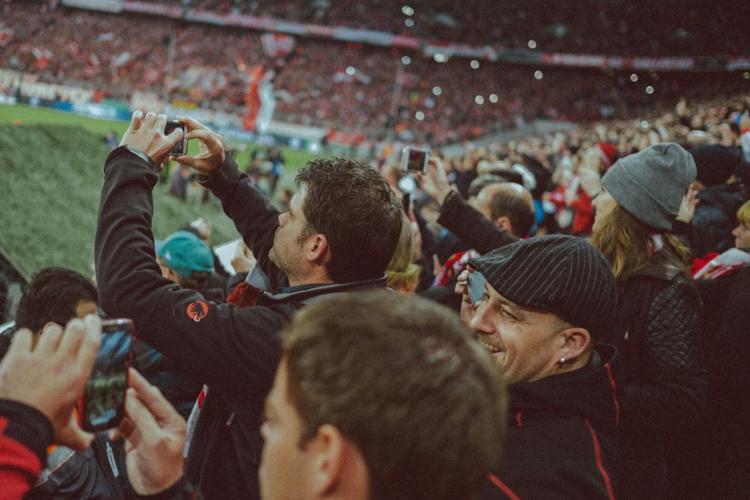


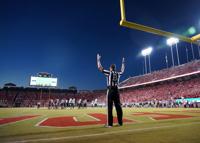



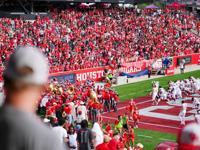

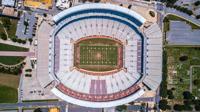

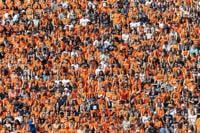

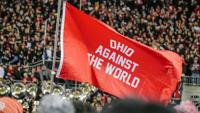


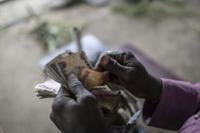





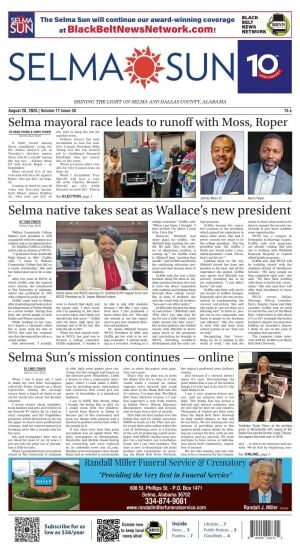







(0) comments
Welcome to the discussion.
Log In
Keep it Clean. Please avoid obscene, vulgar, lewd, racist or sexually-oriented language.
PLEASE TURN OFF YOUR CAPS LOCK.
Don't Threaten. Threats of harming another person will not be tolerated.
Be Truthful. Don't knowingly lie about anyone or anything.
Be Nice. No racism, sexism or any sort of -ism that is degrading to another person.
Be Proactive. Use the 'Report' link on each comment to let us know of abusive posts.
Share with Us. We'd love to hear eyewitness accounts, the history behind an article.